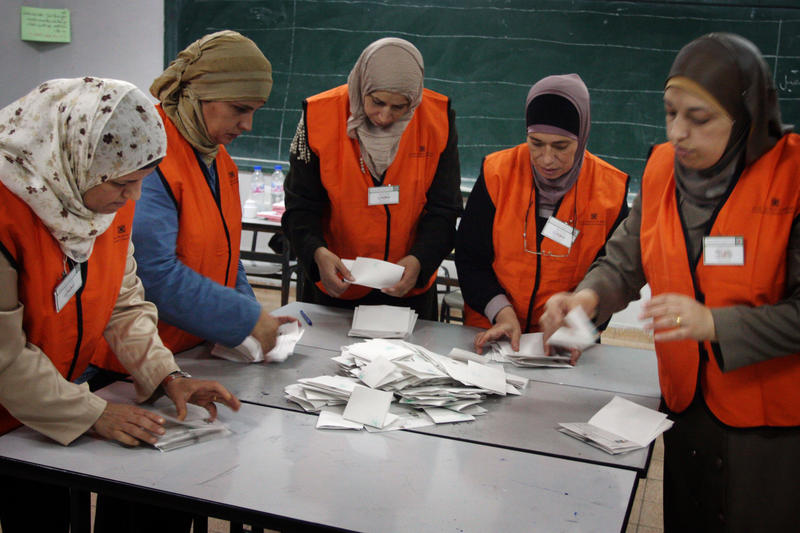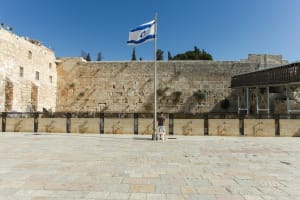Grievance unlimited: How Palestinian politics became the alibi for excuses

It requires real genius to inherit billions in foreign aid, decades of diplomatic indulgence, and the sympathy of half the world - then convert it all into repression, cynicism, and rubble. Yet this, unmistakably, has been the achievement of Palestinian self-rule since its birth in the 1990s.
Nowhere else has so much been given to so little purpose. Thirty years after the famous handshake on the White House lawn, what stands where the dream of Palestine was meant to rise? Not the skeleton of a state-in-waiting but two petty tyrannies: the sclerotic Palestinian Authority in the West Bank and the theocratic thuggery of Hamas in Gaza. One resembles a stagnant company town run by ageing bureaucrats; the other, a fevered cult armed to the teeth but morally bankrupt.
And yet the same refrain echoes from Western chancelleries, NGOs, and editorial pages: if only there were fewer checkpoints, fewer blockades, fewer settlements, a flourishing democracy would bloom between the river and the sea. The occupation, they chant, is the source of all misery. Responsibility is always outward, never inward. The tyrannies themselves are treated as tragic inevitabilities rather than the deliberate choices of men with names, titles, and Swiss bank accounts.
Consider the record.
Since 1994, the Palestinian territories have been among the most extravagantly subsidised places on earth. The European Union, the United States, the United Nations, and the Gulf monarchies - all have showered money upon Ramallah and Gaza. Tens of billions, not millions. Aid meant for schools, roads, courts, clinics; for the infrastructure of statehood rather than the slogans of resistance. Aid on a scale most post-colonial nations could only dream of receiving.
And yet, what stands after all this generosity?
In the West Bank, Mahmoud Abbas presides like a minor Ottoman pasha clinging to office by inertia alone. His current term, now approaching its third decade, began when YouTube didn’t exist. Elections have been postponed so often that nobody bothers to pretend they will ever be held. Rivals vanish into exile or prison cells. Journalists learn the limits of press freedom when the security services arrive after midnight. The Palestinian Authority retains the title of “self-government” but governs mainly through patronage, corruption, and the tired rhetoric of a revolution that long ago calcified into bureaucracy.

Gaza offers no relief from the spectacle. When Hamas seized power in 2007, it promised purity against the PA’s corruption. What it delivered was theological despotism: the budget spent on rockets rather than hospitals, the economy sacrificed to the cult of martyrdom, dissenters silenced with religious fervour. Its leaders have made clear, again and again, that they prefer Gaza in ruins if it keeps the war going rather than Gaza rebuilt under any compromise resembling peace.
Together, these two regimes have managed to create not a prototype state but a warning to anyone tempted to romanticise “liberation movements” after they acquire power.
And through it all, the billions kept flowing. Schools were built, yes, but became laboratories of propaganda. Ministries were staffed, but with cousins and cronies. Police forces were trained by Western donors who naively imagined they would fight crime rather than crush dissent. An entire alphabet soup of NGOs opened offices in Ramallah to “strengthen civil society,” as the jargon goes, only to watch civil society wither under the combined weight of inertia and intimidation.
None of this can be blamed on Israel, unless one truly believes that checkpoints in Nablus somehow forced Mahmoud Abbas to cancel elections for two decades or persuaded Hamas to divert cement from housing projects to military tunnels. The occupation explains many things; it does not explain why Palestinian leaders have proven better at suppressing their own people than at governing them.
Yet the habit of excuse-making dies hard. Western governments and journalists prefer the familiar morality play: Israel as cause, Palestinians as passive victims of history, their leaders as tragic figures rather than authoritarians with agency and appetites. The kleptocracy in Ramallah and the theocracy in Gaza are indulged because confronting them would mean admitting that Palestinian misery has Palestinian authors. Far easier to draft another resolution blaming the usual foreign suspects than to ask why decades of aid and sympathy have produced not democracy but duelling police states.
The truth is simple. Palestinian self-rule has not been strangled from without. It has been squandered from within - by men who found that the world rewards defiance more than competence, victimhood more than responsibility, and the theatre of resistance more than the work of reform.
Statehood is not a pity prize. It is not awarded for suffering or for longevity of grievance. It is earned by constructing the ordinary, boring, indispensable machinery of government: the laws that apply even to the powerful, the budgets that can survive an audit, the schools where students learn science rather than slogans, the elections whose results are not preordained.
None of this exists in the Palestinian territories today.
What exists instead is the theatre of “resistance,” the cult of “steadfastness,” the endless speeches about dignity from men who fear the verdict of their own people far more than they fear Israel. Police forces without independent courts. Ministries without transparency. Schools where thought itself is rationed.
Until there is leadership that values institutions more than slogans, education more than indoctrination, citizenship more than martyrdom, there will be no state worth recognising - only the endless performance of victimhood, subsidised by foreigners, applauded by romantics, and paid for by the very people trapped between the corrupt and the fanatical.
And so the world waits, chequebook in hand, mouthing the old clichés about two states while averting its eyes from the regimes that have turned the dream of one state into a tawdry, wasted fiefdom.
The occupation may well end one day. Whether anything worthy replaces it will depend not on the largesse of foreigners or the enmity of Israel but on whether Palestinian leaders finally choose the hard, unglamorous work of building a society over the cheap, intoxicating theatre of perpetual victimhood.
So far, they have chosen badly.

Ab Boskany is Australian poet and writer from a Kurdish Jewish background born in Kurdistan (northern Iraq). His work explores exile, memory, and identity, weaving Jewish and Kurdish histories into fiction, poetry, and essays.
You might also like to read this:














